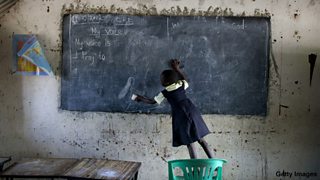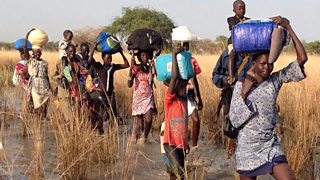Pens down in South Sudan
Manyang David Mayar
Senior Producer, ÷˜≤•¥Û–„ Media Action in South Sudan
Tagged with:

I was at a school in Bor, the capital of Jonglei state, to record interviews for a ÷˜≤•¥Û–„ Media Action radio programme, part of a wider project that aims to transform a generation of South Sudanese girls by increasing access to quality education.
But as the Jonglei students sat their exams three weeks ago, political conflict in South Sudan's capital, Juba, turned into an armed struggle and sporadic gunfire broke out in Bor.
Eighteen-year-old student Achol Ajack told me, "There was no time to think about my answers, no time to write. I was shivering in fear."
Education disrupted
The students' supervisors, also terrified, collected their papers in a hurry, handing them in to the police station where papers are kept before being sent on for marking.
But things changed quickly for the worse. After a mutiny in the nearby military barracks, the same police post became a centre of heavy fighting. It quickly fell to the anti-government rebels, who searched every room of the station.
No one, of course, paid any notice to those simple answer sheets.¬Ý
A teacher, who returned to Bor after government troops retook the town eight days later, said the pupils' examination papers were "torn and scattered all over the area".¬Ý
Survival first

Achol – pictured above in a purple dress – and her classmates fled Bor with their families and found themselves suddenly in a harsh new life. Walking long distances carrying loads on their heads, they were soon hungry and tired and most of them caught diseases like diarrhoea after drinking dirty flood water.
Talks to end the violence are currently taking place in the Ethiopian capital Addis Ababa.
But until a fruitful outcome is achieved, thousands of students like Achol will remain outside classrooms, in the bush or displacement camps where their priority will no longer be exams, but how to survive.
Related links
Follow ÷˜≤•¥Û–„ Media Action on and
